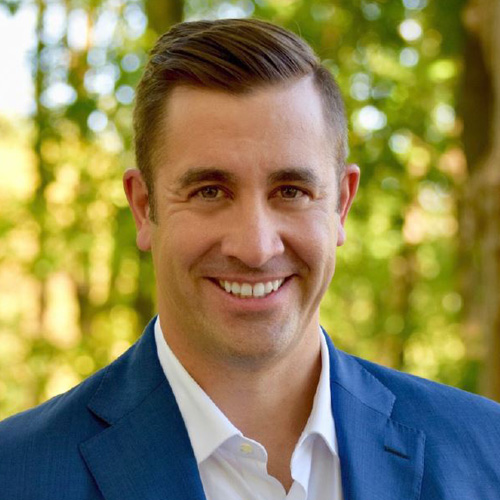Food Technology Magazine | Presidents Message
Finding Joy in Lifelong Learning
IFT President Sean J. Leighton reflects on the importance of continuous learning.
“I’m so done with school.”
Whether you completed a bachelor’s degree program and entered the working world or went on to earn your master’s and/or PhD, even the most passionate students among us probably uttered those words a time or two during their college years. I know I did, and I consider myself an avid learner. But let’s be honest, there is simply no better feeling than walking across the stage on commencement day knowing the rigors
of lectures, labs, research, and exams are behind us.
Thanks to the diverse and stringent food science curricula at colleges and universities around the world, our community has the technical and scientific abilities needed to tackle the immense challenges facing the global food system. Our academic studies provide the foundation for our careers and our abilities to make meaningful contributions in this space, but that’s only the beginning. Learning, both personal and professional, is a lifelong journey.
You’re probably sensing I am a huge proponent of continuous learning and career development. Every nugget of knowledge we acquire helps shape our path. It gives us the tools we need to think differently, navigate complex challenges, build meaningful connections, and avoid stagnation. It can position us for opportunities we didn’t even know existed.
We recently asked members of IFT’s Board of Directors what skills were needed to succeed in the science of food. Not surprisingly, every answer centered around soft skills.
Past President and current Board Treasurer Noel Anderson said he has tremendous faith in the scientific abilities of IFT members but believes we all need to cultivate our communication skills. “If we can’t bring others along with us, they’re not going to accept the types of innovations we deliver to the marketplace,” Anderson said. “Connecting with people on an emotional and personal level helps us develop relationships, communicate better, and lead change.”
IFT Board Member Bill Barrier highlighted a valuable companion to communication—active listening. “To advance in the science of food, we need to be able to understand what we’re hearing and take a moment to process it before we respond.” Barrier also said empathy is critical to the listening process. Considering where colleagues and friends are coming from gives you much-needed perspective as you’re listening.
Communication, listening, and empathy are all required for what IFT Board Member Jeff Varcoe says is the most indispensable skill needed today—the ability to create trusting and caring relationships. “We have a lot of complex problems we’re trying to solve, and building trust is essential to forward progress.”
So how does someone acquire these skills for success? Most of the world’s foremost leadership and career development experts have written fantastic books with practical tips to help us think differently and hone our skills. Consider reading with colleagues or friends. This can add a layer of accountability and create opportunities to discuss and share what you learn. Members of my leadership team at Cargill are constantly sharing their latest reads and learnings, which leads to some great conversations.
Those who swore off reading when they completed their formal education can turn to a wealth of valuable online resources. Following your favorite leadership gurus on social media, subscribing to e-newsletters, or watching videos on YouTube or Ted Talks can give you bite-sized, compelling, skill-building knowledge. And don’t forget about podcasts—one of my favorite ways to learn.
Peer-to-peer mentorship is another incredible way to foster learning and development. Getting involved in IFT’s topic-based divisions, regional sections, or identity-based resource groups and attending IFT FIRST: Annual Event and Expo each summer provides opportunities to share experiences, learn, and collectively contribute to each other’s growth and success. Many companies and academic institutions offer similar opportunities for peer connection.
Keeping your technical skills sharp is also critically important in today’s ever-evolving work environment. Fortunately, IFT makes that easy. With live webcasts, a comprehensive library of on-demand webinars, and a growing catalog of courses for deeper learning on topics such as product development, artificial intelligence, enterprise traceability, and more, IFT has a treasure trove of resources for the continued development of food scientists at every stage of our careers.
Continuous learning is essential for our career development. When we stop learning, we stop growing and risk losing our motivation and sense of purpose. So even if you’re done with school, I hope you always find joy in learning.ft




